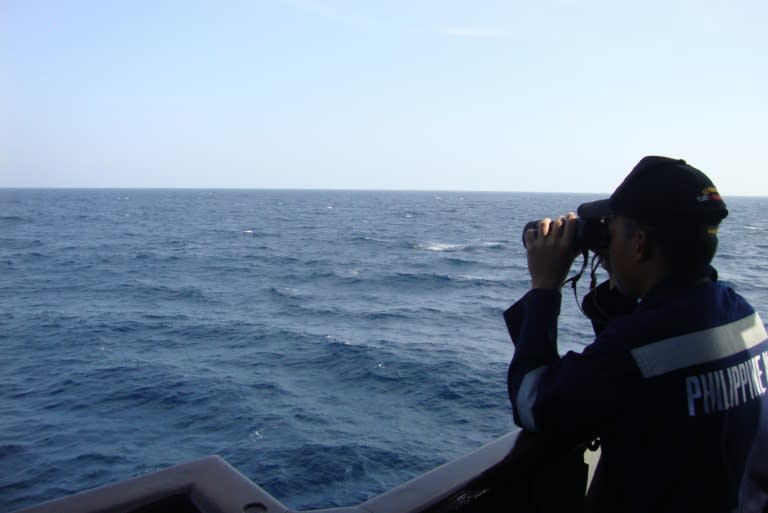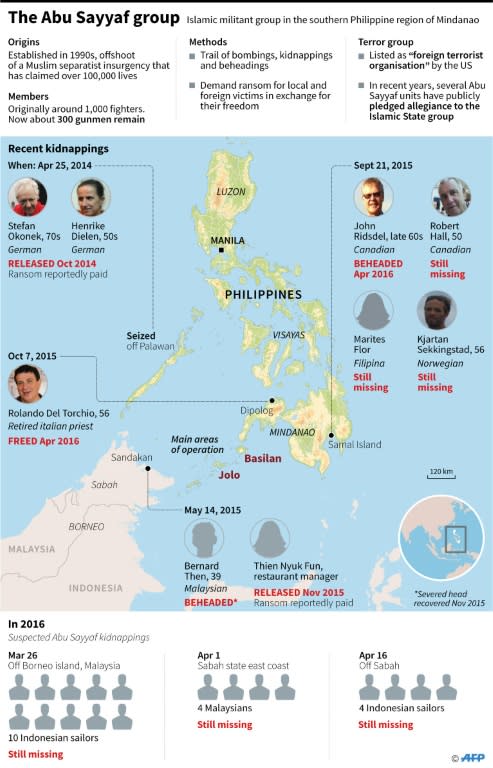Philippine militants release four Malaysian sailors: military
Four Malaysian sailors held for more than two months by a notorious kidnapping-for-ransom gang in the strife-torn southern Philippines were released on Wednesday, the Philippine military said. The Abu Sayyaf, a loose network of Islamic militants that has earned millions of dollars from kidnappings in recent years, released the sailors just after midnight on Jolo island, one of its strongholds, according to regional military spokesman Filemon Tan. The sailors were then taken by speedboat about 300 kilometres (200 miles) back to Malaysia, Tan said. He confirmed that the Abu Sayyaf kidnapped the sailors, but could not say if ransoms were paid. "We have yet to confirm whether ransom money was paid in exchange for the safe release of the victims," said Tan. Formed in the early 1990s, the Abu Sayyaf is a radical offshoot of a Muslim separatist insurgency in the south of the mainly Catholic Philippines. The militants regularly abduct foreigners and locals to extort money for their release. In May, the Abu Sayyaf released 14 Indonesian sailors who had been kidnapped in two high-seas raids similar to the abduction of the Malaysians. The kidnappings prompted Indonesia, Malaysia and the Philippines to launch joint patrols in their waters and set up a security hotline. In April, the Abu Sayyaf beheaded Canadian hostage John Ridsdel after a deadline for paying a ransom of $6.4 million passed, and in November last year killed a Malaysian man. Ridsdel was kidnapped along with a Canadian friend, a Norwegian man and a Filipina from aboard yachts at a marina in the southern Philippines in September last year. The Abu Sayyaf has warned it will kill either the Canadian or the Norwegian if a multi-million-dollar ransom is not paid by Monday. The Abu Sayyaf is also holding a Dutch birdwatcher kidnapped in 2012. The Abu Sayyaf's leaders have pledged allegiance to the Islamic State group, but analysts say it is more focused on kidnappings for ransom than setting up a caliphate.



